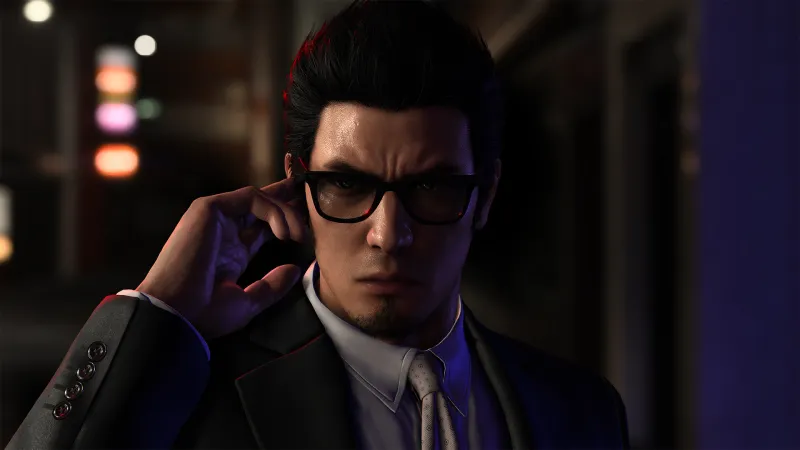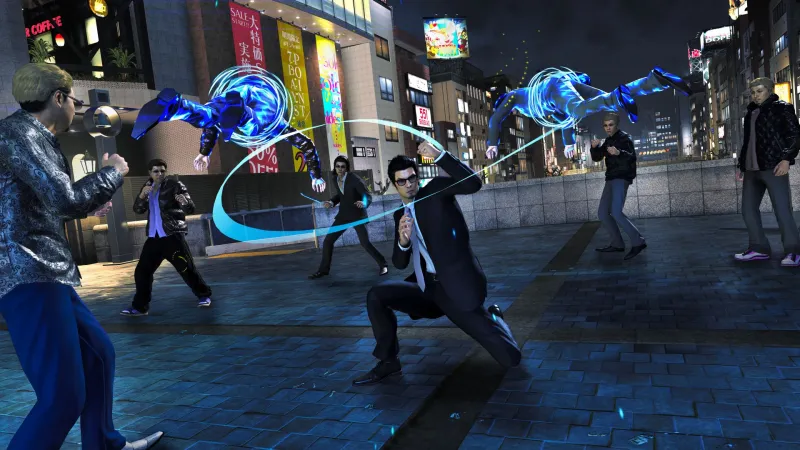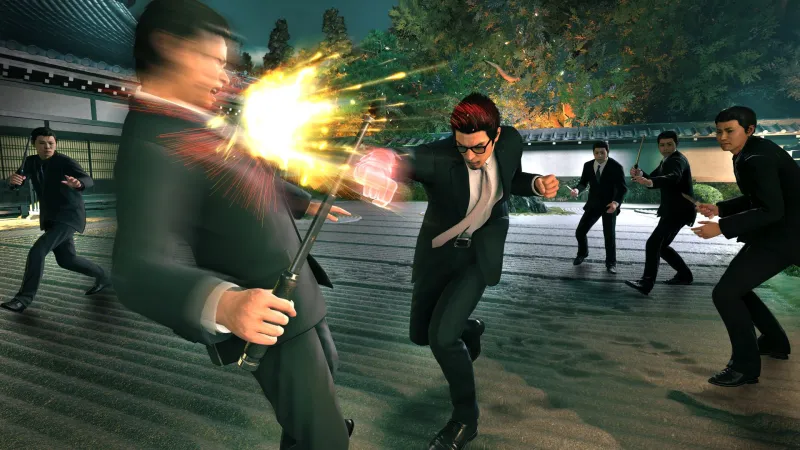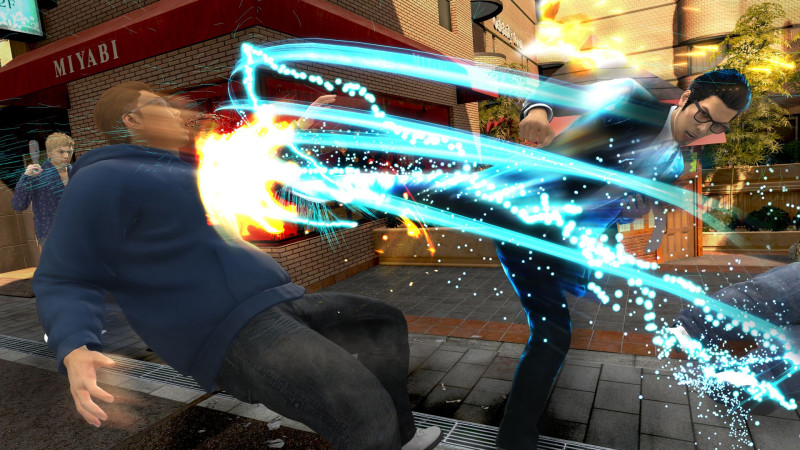
Earlier this month, developer Ryu Ga Gotoku Studio released its second – and not to mention best – game of 2023, the hilariously longly titled Like a Dragon Gaiden: The Man Who Erased His Name. One of the most notable features is how RGG rethought its classic brawler combat. Protagonist Kazuma Kiryu now has two fighting stances, Yakuza and Agent, the latter of which comes with a host of new secret-agent tools, such as an exploding cigarette, a Spider-Man-like cable he can use to whip enemies around, and so on.
We recently had a chat with RGG series chief producer Hiroyuki Sakamoto – who we spoke with last year about the future of the studio – to learn how Gaiden's new combat together, maintaining the series' identity despite how much has changed over the years, and why RGG doesn't look to other games for inspiration.
This interview has been lightly edited for brevity.
GAME INFORMER: Can you walk me through the early conversations about expanding Kiryu's fighting styles with the Agent stance?
Hiroyuki Sakamoto: We had discussed two points: what gadgets to use and whether they could be put together in such a way that they could be considered "a style."
First of all, this time, Kiryu is in the position of an agent, so we decided from the early stages of development that we wanted to include something different from the yakuza styles of the past. Since our main focus has been on full-contact fighting battles, we decided to include a battle style that had never been seen before. We were aiming for something tricky and strategic, not just button-mashing combos.
At first, the story was developed independently of each other, with the story being the story and the battles being the battles. As development progressed to a certain extent, we began to link the gadget settings to the special skills of the Daidoji faction. Therefore, the enemy agents of the Daidoji faction also began to use their own gadgets, thus tying the storyline and the battles together.

GI: How did you come up with each new tool he uses?

Sakamoto: After brainstorming ideas for spy gadgets that were familiar with movies and other sources, we chose from the ones that had a high affinity with Kiryu's actions.
At first, we considered a hidden pistol, as a spy might use, but decided against it, fearing that the game would turn into a shooter battle. We also felt that defeating enemies with gadgets alone would be too bland for an action game. In the end, we thought the best combination was to have Kiryu use gadgets plus hitting the enemy at the same time, and we thought that this style of gadget and hand-to-hand combination would be the most “[RGG]-like” style.
GI: How do you balance the two fighting styles so players use both rather than solely picking their favorite and never switching?
Sakamoto: We designed the balance for players to see the advantages and disadvantages depending on whether you are fighting mainly at close range or at long range, against multiple enemies or a single enemy – and then strategize around it. Each style also has a unique skill tree with powerful actions which are advantageous at different ranges and situations, and some are just very entertaining to experience, which we hope will excite players enough to try both styles.

GI: I noticed in this game Kiryu felt a lot more fluid to move around in combat than in previous games – is that something you all are constantly working on?
Sakamoto: We are always trying to refine the feeling of response while pressing buttons, and we try to make the game move the way we want it to move the most when played at 60 [frames-per-second]. I also feel that the richness of the action can be greatly affected by the effects, and we could even push it further. I think we were able to achieve this in Like a Dragon Gaiden.
GI: Are there any other action games you all look to for inspiration or reference when making your own games?
Sakamoto: It's actually difficult to find a full-contact fighting action game, so we don't really have any games that we looked [to] for inspiration or reference. We, on the other hand, try to draw inspiration from fighting competitions and action movies – a realistic fight battle where you can feel the pain. There are many action games where various expressions are muted, but we believe there is catharsis in realistic and painful fighting.

GI: Since all your games now follow two different mechanical paths – the classic brawler combat and the newer turn-based combat in Yakuza 7 and Yakuza 8 – how are you all balancing it so that the series doesn't lose its identity towards one way of playing? Is that a hard balance?
Sakamoto: We are not particularly conscious of [the] balance between the two. As long as each one is interesting in its own way, that is all that matters to us. What I am very conscious [of] is how attractive the new game should be.
RGG Studio's games are narrative games. We always think flat about the most enjoyable form of that narrative, which combat factors into. For example, one reason why we decided to make Yakuza: Like a Dragon [Yakuza 7] an RPG is because we always think flat. Aside from combat, we have also made many styles of mini-games, so we are confident that we can make an enjoyable game, even if it is in a genre we have never made before.
Ultimately, we believe that a game made with that kind of thought process will have the best story and the system to match.
Hope to see you in Next Article Soon!

No comments:
Post a Comment